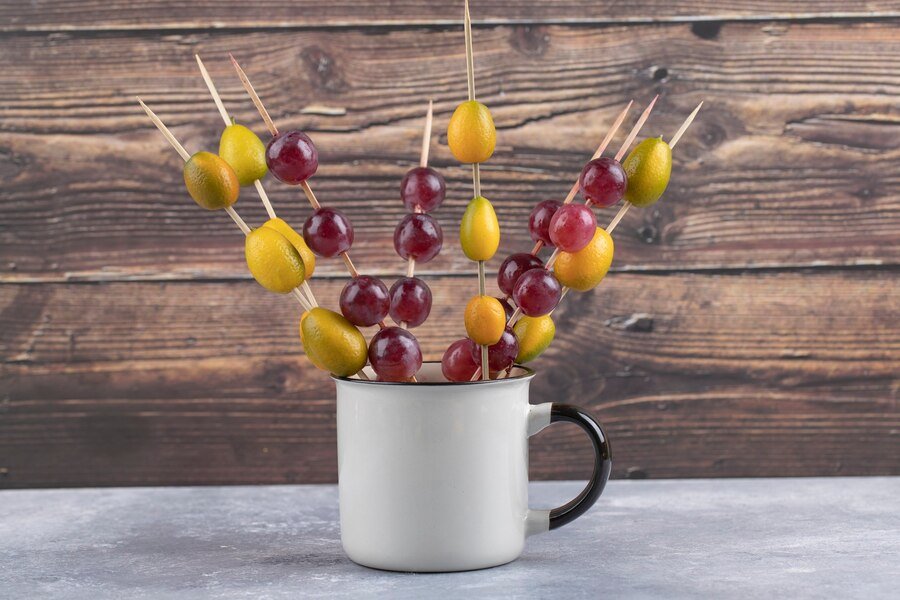Blog
Pickles: A Tangy Treat Loved Worldwide

Pickles are a timeless culinary staple, adding a tangy, crunchy burst of flavor to dishes across the globe. From their ancient origins to their modern-day versatility, pickles have cemented their place in kitchens, restaurants, and hearts everywhere. Let’s explore everything you need to know about pickles—their history, preparation, types, health benefits, and creative uses.
What Are Pickles?
At their core, pickles are vegetables or fruits preserved in a brine or vinegar solution. This preservation process not only extends the shelf life of the food but also imparts a tangy, salty, or spicy flavor, depending on the ingredients used.
A Brief History of Pickles
Pickles date back thousands of years, with origins traced to Mesopotamia around 2400 BCE. They were initially developed as a method to preserve cucumbers for off-season use. Over time, pickling spread to various cultures, each adding its unique spin to the process. For instance:
- India: Known for its spicy, oil-based pickles like mango and lime.
- Germany: Famous for dill pickles and sauerkraut.
- Japan: Renowned for fermented pickles such as tsukemono.
How Are Pickles Made?
The pickling process can be divided into two main methods:
1. Fermentation
In this traditional method, vegetables are soaked in a saltwater brine, allowing natural bacteria to ferment the sugars into lactic acid. This acid acts as a preservative and creates the signature tangy flavor.
2. Vinegar Pickling
Here, vegetables are submerged in a solution of vinegar, water, and seasonings. This quicker method doesn’t rely on fermentation and often results in a crispier texture.
Types of Pickles
The world of pickles is vast, with endless varieties to suit different palates. Some popular types include:
1. Dill Pickles
These are the classic cucumber pickles flavored with dill weed and garlic. They are widely popular in sandwiches and burgers.
2. Bread and Butter Pickles
These sweet and tangy pickles are made with sugar, vinegar, and spices like mustard seeds and turmeric.
3. Gherkins
Small, bumpy cucumbers pickled in vinegar, commonly enjoyed as a snack or garnish.
4. Kimchi
A Korean staple made by fermenting Napa cabbage and radishes with spices, garlic, and ginger.
5. Mango Pickle
A spicy Indian pickle made from raw mangoes, oil, and a blend of bold spices.
Health Benefits of Pickles
Pickles are not just a tasty addition to meals; they also offer several health benefits:
1. Rich in Probiotics
Fermented pickles contain beneficial bacteria that promote gut health and improve digestion.
2. Packed with Antioxidants
Pickles made from fruits and vegetables retain their natural antioxidants, which combat harmful free radicals in the body.
3. Electrolyte Balance
The salt content in pickles can help replenish electrolytes, especially after exercise or during dehydration.
4. Low-Calorie Snack
Most pickles are low in calories, making them a guilt-free snack option.
Creative Uses of Pickles
Pickles can be used in numerous ways beyond being a side dish. Here are some ideas:
- Salads: Add a tangy crunch to potato or pasta salads.
- Sandwiches and Wraps: Layer pickles for an extra zing.
- Pickle Juice: Use the leftover brine as a marinade or a base for salad dressings.
- Cocktails: Incorporate pickle brine into Bloody Marys for a unique twist.
- Pickle Pops: Freeze pickle juice into popsicles for a refreshing, savory treat.
Homemade Pickle Recipe
Making pickles at home is simple and rewarding. Here’s a quick recipe for classic dill pickles:
Ingredients:
- 4-5 cucumbers
- 2 cups water
- 1 cup white vinegar
- 1 tablespoon salt
- 1 tablespoon sugar
- 2 garlic cloves
- Fresh dill sprigs
Instructions:
- Wash and slice the cucumbers into spears or rounds.
- In a saucepan, combine water, vinegar, salt, and sugar. Bring to a boil.
- Pack cucumbers, garlic, and dill into sterilized jars.
- Pour the hot brine over the cucumbers, leaving some space at the top.
- Seal the jars and refrigerate for at least 24 hours before enjoying.
Fun Facts About Pickles

- Cleopatra reportedly ate pickles for their beauty-enhancing properties.
- Julius Caesar fed pickles to his troops, believing they increased strength.
- The world’s largest pickle weighs over 1,100 pounds!
Conclusion
Pickles are a versatile, flavorful, and healthful addition to any meal. Whether you prefer them sweet, sour, or spicy, there’s a pickle for everyone. From their ancient origins to their modern culinary applications, pickles have proven to be much more than just a preserved vegetable. So, grab a jar and relish the tangy goodness!
FAQs
Are pickles good for your health?
Yes, especially fermented pickles, which are rich in probiotics and beneficial for gut health.
Can I reuse pickle brine?
Yes, you can use it as a marinade, in dressings, or even to pickle other vegetables.
How long do homemade pickles last?
Refrigerated homemade pickles typically last 2-3 months if stored properly.
What vegetables can be pickled?
You can pickle almost any vegetable, including cucumbers, carrots, radishes, and cauliflower.
Are pickles vegan?
Most pickles are vegan, but check for additives like fish sauce or other animal-derived ingredients in flavored pickles.
-

 Tech1 year ago
Tech1 year agoHow to Use a Temporary Number for WhatsApp
-

 Business2 years ago
Business2 years agoSepatuindonesia.com | Best Online Store in Indonesia
-

 Social Media2 years ago
Social Media2 years agoThe Best Methods to Download TikTok Videos Using SnapTik
-

 Technology2 years ago
Technology2 years agoTop High Paying Affiliate Programs
-

 Tech1 year ago
Tech1 year agoUnderstanding thejavasea.me Leaks Aio-TLP: A Comprehensive Guide
-

 FOOD1 year ago
FOOD1 year agoHow to Identify Pure Desi Ghee? Ultimate Guidelines for Purchasing Authentic Ghee Online
-

 Instagram3 years ago
Instagram3 years agoFree Instagram Auto Follower Without Login
-

 Instagram3 years ago
Instagram3 years agoFree Instagram Follower Without Login





















